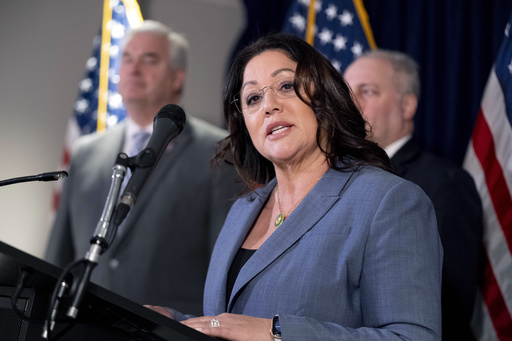
WASHINGTON — On Friday, President-elect Donald Trump selected Oregon Representative Lori Chavez-DeRemer as the nominee to head the Department of Labor in his upcoming administration. This decision highlights a Republican congresswoman who has garnered significant support from unions in her constituency, despite her loss in the recent election.
For Chavez-DeRemer to assume her role, she will need to gain approval from the Senate, which is projected to remain under Republican majority when Trump is inaugurated on January 20, 2025. He will be able to formally present his nominations to Congress at that time.
Here are some key points regarding the labor secretary nominee, the department she may lead if confirmed, and her potential impact on Trump’s second term.
Chavez-DeRemer has shown a notable commitment to labor issues
As a one-term congresswoman, despite losing her reelection bid in a competitive Oregon district, Chavez-DeRemer has made a significant mark on worker rights and union matters during her brief time in Congress. Her legislative actions contrast with the typical business-centric alliances often associated with the Republican Party.
She strongly backed the PRO Act, a significant bill intended to facilitate federal unionization efforts. This legislation was among the key priorities for Democratic President Joe Biden and passed the House while Democrats held the majority. However, it never gained sufficient support from Republican senators to overcome the filibuster threshold required in the Senate.
In addition, she co-sponsored another bill aimed at safeguarding public-sector workers from having their Social Security benefits reduced due to government pension plans. Unfortunately, that initiative has also stagnated owing to a lack of bipartisan support.
Concerns linger among union leaders regarding Trump’s agenda
Although Chavez-DeRemer’s past actions may appeal to labor advocates, many union leaders remain hesitant. There’s still a lingering distrust towards Trump’s administration.
Trump has long positioned himself as an ally of the working class, successfully winning over blue-collar workers and non-college-educated Americans—a strategy that allowed him to weaken the Democrats’ traditional edge among households with union members.
However, during his previous term from 2017 to 2021, he appointed business-friendly individuals to the National Labor Relations Board and supported measures that complicated unionization efforts. He has openly criticized union leaders and even suggested that members of the United Auto Workers should abstain from paying dues. While his administration did broaden overtime eligibility, the changes were not as expansive as those advocated by Democrats, and subsequent rulings have rolled back some advancements made under Biden’s administration.
Despite recently distancing himself from the conservative Heritage Foundation’s Project 2025 during his campaign, Trump has since shown increased alignment with some of its objectives, which aim to shift workplace power further in favor of employers, potentially undermining labor protections.
Following Trump’s announcement, National Education Association President Becky Pringle acknowledged Chavez-DeRemer’s accomplishments but urged caution. “Educators and working families across the nation will be watching … as she moves through the confirmation process,” Pringle stated, expressing a desire to see a commitment from Chavez-DeRemer to uphold worker and student advocacy, rather than align strictly with the Project 2025 agenda.
The Labor Department may receive heightened attention under a wealthy Cabinet
Typically, the Labor Department operates with less public scrutiny, but under Trump’s focus on working-class issues, it could be placed in the limelight, especially amid a Cabinet comprised of affluent individuals, including the president-elect himself.
Trump has criticized the department’s standard role of compiling employment statistics, alleging manipulation of unemployment figures and workforce data during Biden’s administration.
If confirmed, Chavez-DeRemer may find herself navigating between the nonpartisan Bureau of Labor Statistics and a president who has strong views on economic data and its implications for government performance. Her management of overtime policies will be closely observed, and she might become involved in Trump’s controversial promise concerning mass deportations, which could put her at odds with sectors that rely heavily on immigrant labor.
Chavez-DeRemer brings diversity to the Cabinet
Notably, Chavez-DeRemer is the first Republican woman elected to Congress from Oregon. Alongside Secretary of State-designate Marco Rubio from Florida, she represents a diverse selection in Trump’s second Cabinet, following his first labor secretary, Alexander Acosta, who also hailed from the Latino community.
